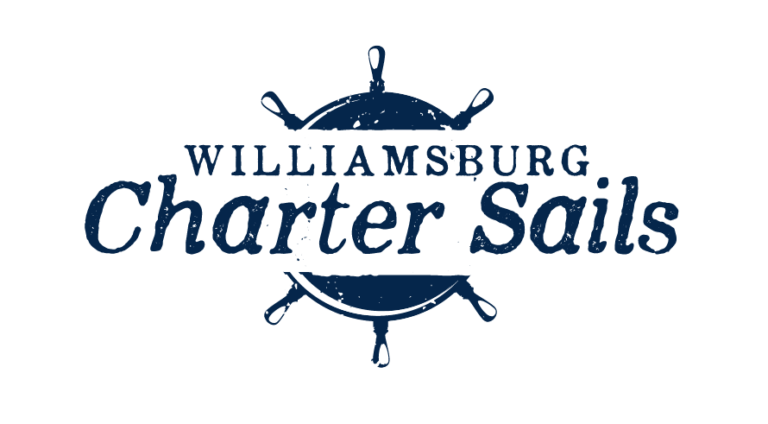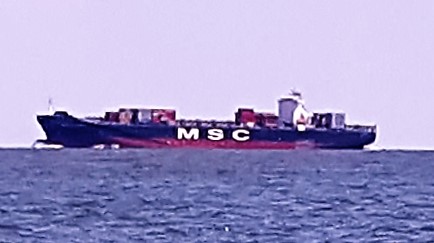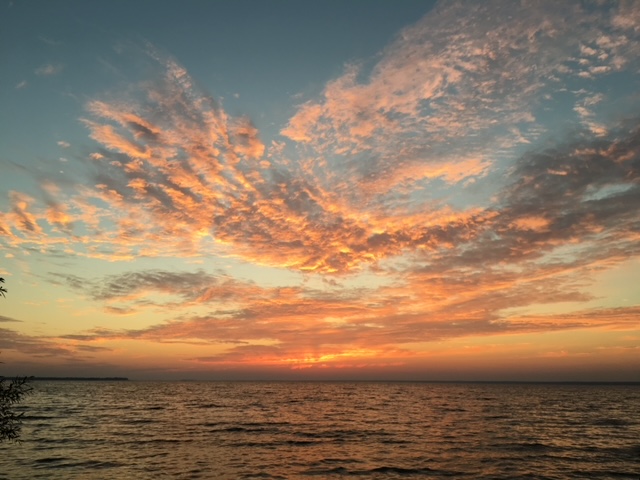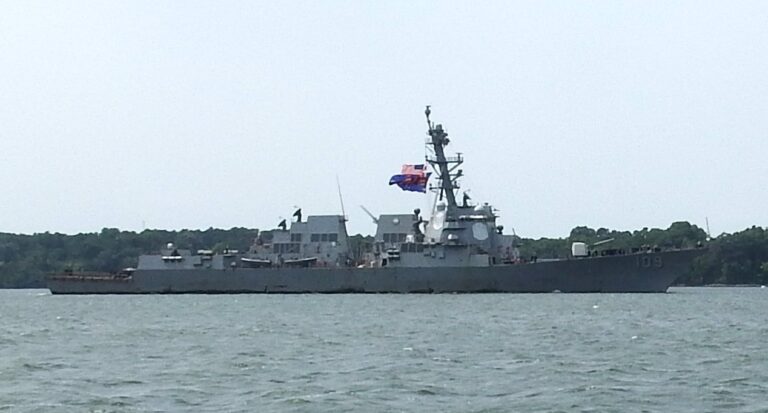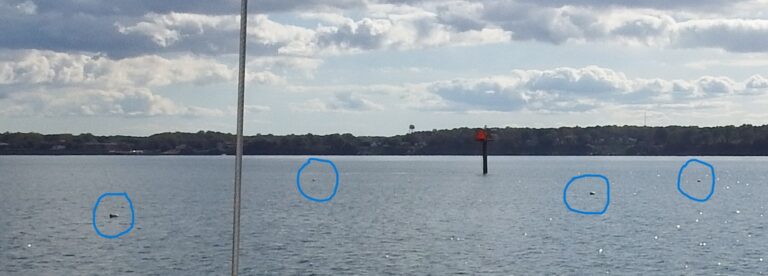Two fellows from Hampton Roads set out on a brilliant Saturday morning to advance their sailing skills by learning to sail big. Dan Fisher and Jim Brock took the ASA 101 basic keelboat course separately. Now they assembled for the next step, ASA 103 intermediate coastal cruising. They had never met before. Dan has a 1984 Hunter 31 docked at Smith Mountain Lake in western Virginia. Dan has a big catamaran that he trailers out of Buckroe Beach.
The difference between the introductory and intermediate course is the boats and the range. ASA 101 teaches the basics on a 22-foot Catalina Capri, which is great for sailing around Willoughby Bay and out to the James River at the entry to the Port of Norfolk.
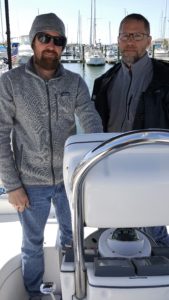 ASA 103 teaches intermediate skills on a 36-foot Hunter, and the range of cruising distance extends to all of Chesapeake Bay. The boat is an order of magnitude larger, with a diesel engine and complete cabin to reside overnight for a week or ten days.
ASA 103 teaches intermediate skills on a 36-foot Hunter, and the range of cruising distance extends to all of Chesapeake Bay. The boat is an order of magnitude larger, with a diesel engine and complete cabin to reside overnight for a week or ten days.
These ASA courses are under the tutelage of SailTime Virginia Beach. 101 is taught in a classroom in the morning, followed by an afternoon sail. 103 is taught on the boat, using the saloon as a classroom to point out all the interior features.
We reviewed all of the nomenclature for the parts of the boat as well as the interior equipment. These include the engine, the head, the galley and the electrical system. One does not have to be an expert on any of these since experience will accrue with each cruise or day sail.
Safety equipment is vital: PFDs, VHF marine radio, Flares, air horn, flashlight, fire extinguishers and more. We worked on memory devices to get them all memorized.
We headed out from Bay Point Marina to test the winds and water of the lower Chesapeake Bay. Here I emphasized the single most important lesson of the day, albeit ridiculously simple: Look around to see where you came out so you know how to get back. Get a picture in your head of the marina lane or fairway you just departed. Then look back after exiting the creek or inlet to see where to go back.
Dan is an environmental engineer, and Jim is a physicist engineer with Jefferson Labs in Newport News. They had already mastered the points of sail on the smaller boat, so the objective here was to move upscale. As engineers, they got it quickly. The wind was fluky as it took us out on a close reach toward Thimble Shoals Lighthouse, the pivot point for commercial and Navy traffic. We watched a freighter approach from the Atlantic Ocean, and I raised him on radio to give him our intentions. He thanked me for the heads-up. He had already experienced learning to sail big.
Eventually we ventured home, and sure enough it took a few minutes to figure out where to go. I avoided the temptation to refer to the Garmin electronic chart on board, instead scanning the horizon. I found a water tower that we left behind, but Jim corrected me to another water tower a few miles to port.
We practiced docking in two parts, which led Jim to say, “Full disclosure. My experience docking is to sail right up onto the beach.”
The first part was landing at a T-head and the second was re-docking into our assigned slip. As scientists and experienced sailors, they nailed the T-head. As we came into one from a different angle, out of nowhere a guy docked in a nearby boat had his dinghy davit snap. The stern of the dinghy fell into the water, nearly submerging his outboard. “The cable snapped,” he reported later. Jim and Dan were unfazed, totally concentrating on reaching the T-head precisely.
The slip was trickier, and I showed them the Watermen’s Wrap to back in. Instead of trying to align the boat perfectly in front of the slip, simply approach it sideways and used a line on the port pole to leverage the aft quarter cleat. Let the equipment provide the leverage. They got it.
Next, Dan and Jim will complete Day 2 of ASA 103 and immediately begin ASA 104, which is offshore advanced. They are heading out with another ASA instructor to explore Cape Charles and Hampton’s Salt Pond Marina. Having accomplished learning to sail big, they can sail anywhere in the world.
Let’s Go Learning to Sail Big
Scroll down Rates and pick a day for a sailboat charter. Scroll down Reviews on Trip Advisor. Go back to the Home Page of Williamsburg Charter Sails.
learning to sail big learning to sail big learning to sail big
